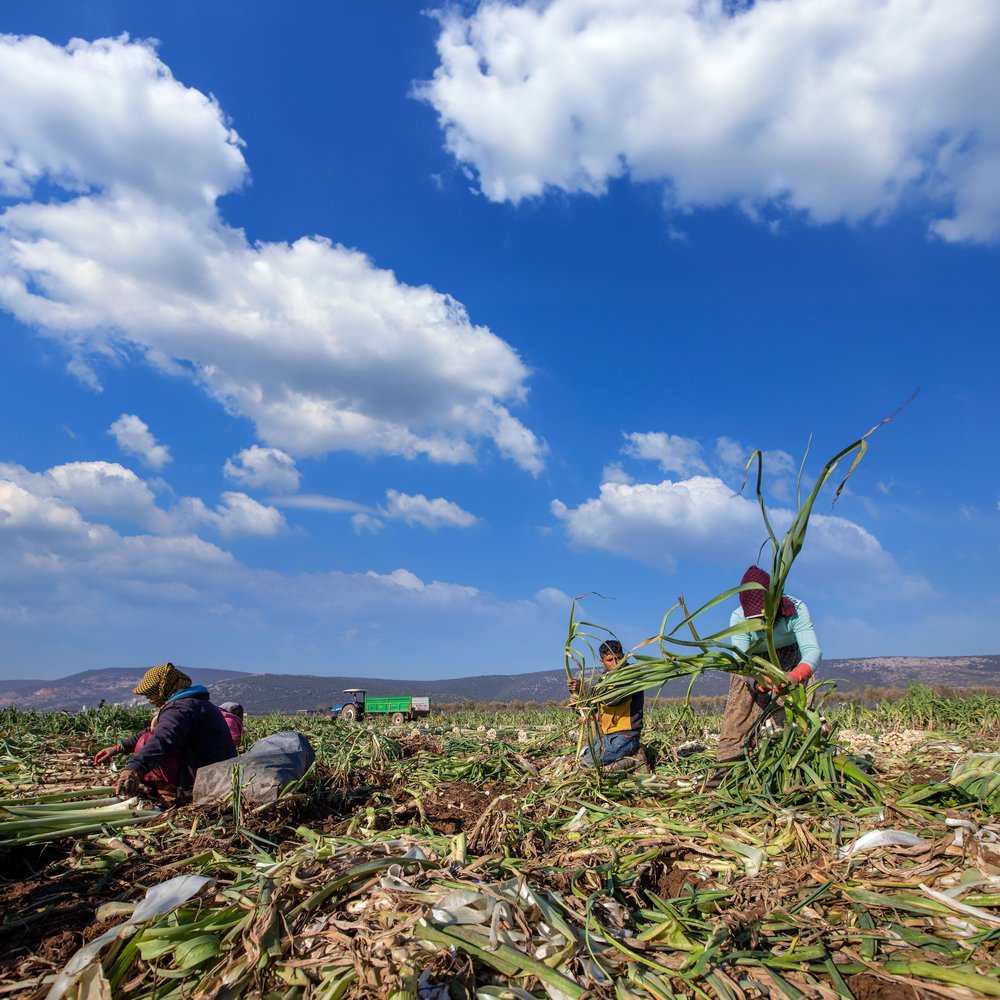2023 KnowTheChain Food & Beverage Benchmark

Shutterstock (licensed)
The food system is a cornerstone of the global economy, accounting for up to two thirds of all jobs. People who harvest, pick, catch, process and pack commodities and products in global food supply chains are relied upon as essential workers. As a result, they are often on the frontline of global insecurity and – frequently – catastrophe, bearing the brunt of the climate crisis, conflict, economic instability and soaring inflation, and social unrest.
The core findings of the benchmark, which analyses the disclosure and performance of 60 of the world’s largest global F&B companies on their efforts to address forced labour in supply chains, highlight that the sector still has a long way to go in ensuring that its supply chain workforce is protected from forced labour.
Only 50% of companies assessed in the food and beverage benchmark scored more than 10/100 when it comes to addressing forced labour in their supply chains. The gap between the highest-scoring company, Woolworths Group (56/100), and the average food and beverage company (16/100) is significant, revealing a grossly unlevel playing field within the sector. The 2023 F&B benchmark uses a revised methodology, prioritising the measurement of policy implementation, stakeholder engagement, and remedy outcomes for workers to assess whether companies’ actions to address forced labour risks in their supply chains result in meaningful change for workers.
Key findings include:
- Companies perform particularly poorly on when it comes to preventative measures, such as: supporting freedom of association and collective bargaining (9/100); and remedy efforts, including fee repayments and remediating harm to workers (6/100).
- Not nearly enough is being done by companies to address exploitative recruitment practices (13/100), which often leave already vulnerable workers indebted and struggling.
- Companies fail to identify and report human rights risks, despite high-risk sourcing. More than a third (37%) of companies have yet to disclose how they carry out a human rights risk assessment on their supply chains, including meat companies Hormel (9/100), JBS (4/100), Tyson (3/100) and WH Group (0/100).
- Some companies disclosed little to no improvement in the six years KnowTheChain has been assessing them. This included meat companies JBS (4/100) and Tyson (3/100), as well as Coca-Cola bottler FEMSA (3/100). These companies have consistently failed to demonstrate even basic relevant policies and practices to address worker exploitation which is inherent in the sector.
2023 Ranking
Explore the ranking, company scorecards and more
Companies should:
Adopt a worker-centric approach to due diligence by ensuring workers and other key stakeholders, such as unions and civil society organisations, play a central role in the design, implementation, and monitoring of key due diligence processes, including:
- Risk assessment (including safe engagement with workers affected or potentially affected);
- Grievance mechanisms; and
- Supplier monitoring.
Address risks to migrant workers, who may be subject to exploitative recruitment practices, by:
- Adopting and disclosing a policy that aligns with the Employer Pays Principle, specifying that the employer must bear the costs of recruitment rather than the worker.
- Implement the Employer Pays Principle by ensuring employers pay recruitment fees and related costs in accordance with the ILO definition, and preventing fees and costs being charged to workers, including obtaining verifiable proof that employers are paying fees.
- Take steps to ensure the effective, timely and transparent remediation of worker-paid fees across supply chains.
Ensure supply chain workers receive remediation for harm, including supporting reimbursement of recruitment fees.
Want to learn more?
Read the full benchmark findings report
Learn more about the detailed findings of the benchmark including trends in the sector
Investor briefing
Learn more about risks in the sector and read our recommendations for investors
Explore our findings by region, subsector and theme
KnowTheChain’s 2023 Food & Beverage benchmark assesses the efforts of 60 of the largest food and beverage companies to address forced labour in their supply chains. Explore the findings by region, subsector, and theme.
This briefing was updated in October 2023 to reflect information provided by Seven & i